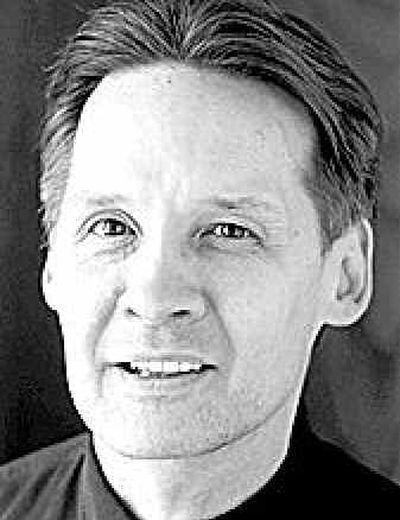Democrats want everyone to know who was first

Whether they voted to raise their sales tax for buses on Tuesday or not, Spokane residents have to be happy that Congress finally seems serious about making sales tax deductible again. How serious is debatable, but at least serious enough to take partisan shots at each other over an issue that has been comatose for much of the past 16 years.
The latest salvo came at midweek when Democrats in the Washington delegation became fed up with George Nethercutt shining the spotlight on his efforts to get the deduction back into law.
They consider the Spokane Republican a George-come-lately to the whole issue, noting that he voted against the idea earlier this year on another bill.
On Tuesday, Nethercutt had held a press conference to explain that GOP House Majority Leader Tom Delay and Ways and Means Chairman Bill Thomas were amenable to tossing the deduction into a pending tax bill.
Essentially, that amendment would allow residents of Washington and eight other states that don’t have a state income tax to deduct sales tax instead.
This only matters for people who have more than the standard deduction, so if you file a 1040EZ, it’s no big deal.
Although Nethercutt was sure a sales tax deduction was a done deal, Democrats were quick to point out that Thomas was waffling, saying nothing is in or out of the bill yet. A spokesman for the Nethercutt campaign downplayed the discrepancy, saying his boss had assurances from Delay that it’s all sewed up.
But Sens. Patty Murray and Maria Cantwell and the six Democrats in the House took the liberty of dropping Thomas a note, calling for the immediate inclusion of a sales tax deduction in the tax bill, just to make sure.
Then they took the liberty of forwarding a copy of the letter to the state’s news media. To make double sure, it would seem.
The Buzz: latest rumor on the campaign trail
Democratic presidential candidate John Kerry will be in Washington on Wednesday, with at least one public campaign event and one fund-raiser, somewhere in the Puget Sound metropolis. Details won’t be announced until Monday morning.
He’ll be there with his wife and the visit reportedly will include some down time – no photo ops, no interviews, no money begging – for at least part of the day.
Not because they’re slacking off regarding Washington state, said one source, but because it’s their wedding anniversary.
Rock on, voters
Spokane Community College will try its own version of Rock the Vote Monday, with four bands as bait for candidates and political activists in the school’s outdoor amphitheater from 11 a.m. to 1 p.m.
Andrew Gibbs of the SCC student council said the bands are from the Warped Tour (if you have to ask, it’s not your kind of music) and include Matchbook Romance. They’ll be at the center of the amphitheater – weather permitting – and candidates, their campaigns and some of the initiative drives will set up tables on the periphery.
Music is free, but students will have to make their way through the politicos to get close, so there is a cost of sorts.
Gibbs says that apathy is a problem at SCC. For the most recent student elections, they had a turnout of 273, he said. Out of a student population of about 7,100.
Keeping score
For those who want their political information without a side order of punk, Project Vote Smart is releasing a massive scorecard for Congress. Technically, it’s not Vote Smart’s score card, but a compilation of scorecards from 100 different special interest groups which grade members of Congress based on how they vote on key issues.
They tout it as ranging from the Christian Coalition to Vote Hemp, but in truth the spectrums are broader, such as National Right to Life and Planned Parenthood or the National Rifle Association and the Coalition to Stop Gun Violence.
The ratings depend on which handful of votes a group plucks from the thousands each member of Congress casts, and one shortcoming of Vote Smart’s system is it’s not possible to tell whether two groups that give a person wildly different ratings on the same set of issues – say the Alliance for Retired Americans and the United Seniors Association – are looking at the same votes.
But the raw scores do give voters an idea of where each candidate stands.
Vote Smart also asks incumbents and candidates to participate in a survey of key issues, although most Northwest members of Congress skip the test.
All of this can be found at
ww.vote-smart.org.
Chapter and verse
Would-be Republican senate candidate Reed Davis continued his battles with the state GOP last week, after State Chairman Chris Vance nixed his chances of addressing the state convention next weekend in Bellevue.
Davis, it seems, won’t sign a pledge to adhere to that holiest of holies in the Republican New Testament, the 11th Commandment.
The Book of Reagan commands, “Thou shalt not speak ill of another Republican.” Candidates wishing to address the state convention are being asked this year, as they have in the past, to sign a statement to that effect. Lightning will strike those who transgress.
But Davis’ campaign for the GOP senate slot hinges on denouncing party anointee George Nethercutt as a spendthrift who’s not a true fiscal conservative. So signing the pledge would be, as the policy wonks say, problematic.
Davis is a delegate to the convention, so he can’t be barred from the hall. It’s possible his supporters could agitate for him to be heard.
But in Vance’s defense, the banning of candidates who won’t sign the pledge does have precedent in the state GOP. Presidential candidate Pat Buchanan was barred from the state convention in 1992 when he refused.
Buchanan and friends milked it for all they could get with demonstrations outside the hall.